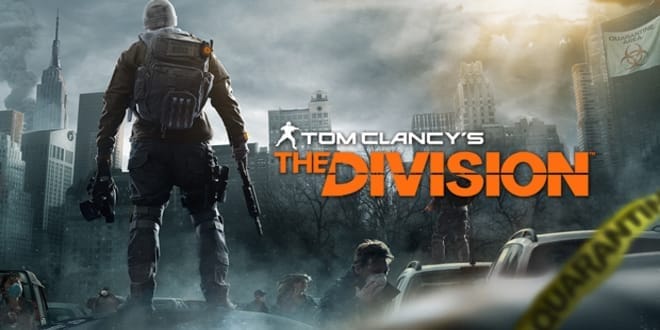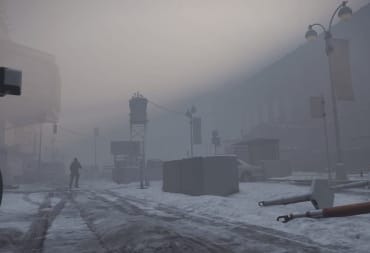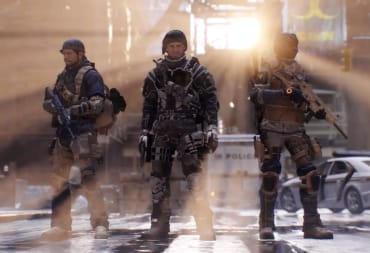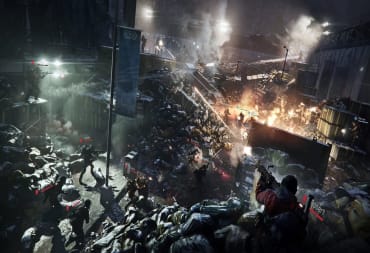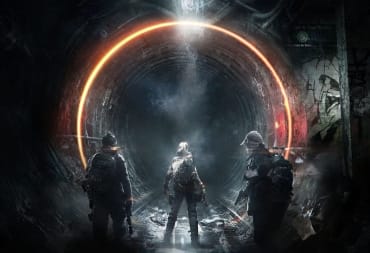Exploiting a loophole or a glitch in videogame code is to videogames as what using performance enhancing drugs is to athletics. In both cases, the act results in unscrupulous players obtaining an unfair advantage over their peers who play “by the rules”.
As ever, we’ve answered the “what” relative to exploiting, which isn’t particularly interesting. The “why” of people exploiting is far more interesting, and it is doubly so when the “why” fails to hold up to scrutiny. TechRaptor’s own Anson Chan tried to explain the phenomenon by digging superficially in to the “why” of exploiting. In this commentary, we’re going to dig deep into the “why,” and why the “why” collapses under scrutiny.
The Difference Between Inexperienced and Bad
I’m going to use some variants of, “Mad ‘cuz bad,” over the course of this commentary, and it is important to clarify what being “bad” means versus being “inexperienced” in the context of a videogame. To do so, I am going to use the example provided in the Chan commentary about “unfair Shotgunners.”The first faction to use ordinary mobs with shotguns is The Rikers. The direct consequence of this is a player could be in the late teens or early twenties in terms of character level before a player encounters one. However, players have had experience with “shock troops,” mobs who rush the player/group and attempt to engage in combat over extremely short range, before encountering shotgun mobs.
The Rioters have mobs that rush players with golf clubs. The Cleaners have mobs that rush the player with axes and shields, as well as mobs that attack with flamethrowers. The first 18-ish player levels fighting these mobs serve several purposes. One of these purposes is to train the player/group to prioritize targets and focus fire.
When players encounter The Rikers, they get their first experience with shock troops with guns. The mobs still act basically the same as the previous shock troop mobs, in as much as they run directly at the player/groups to engage in combat at very short range. The big difference between the mobs with shotguns and the mobs without is the effectiveness of the mobs in combat.
So, it is 100% understandable that a person could get one-shot by a shotgun mob at point-blank range once. If one does not know something is about to happen, they cannot be expected to change their behavior to accommodate information they did not have. The second time a person gets one-shot is less understandable than the first, the third less understandable than the fourth, and so on.
LMB shock troops up the ante even more. Fun fact: Did you know LMB shock troops will switch weapons from an assault rifle to a shotgun when they close to medium range, rendering them totally vulnerable to attack?
Eventually, the fault of a player getting clobbered by a shock troop mob lies not with the mob, the mob’s design, or the level design, but with the player.
Here’s a list of things players can do to prevent themselves from being one-shot by a shotgun mob: prioritize shock troops, focus fire on shock troops, increase stamina, increase armor, crowd control. One or more of those four things can all but guarantee players will never get one-shot by a shock troop.
4 Horseman of the Mechanalypse
Falcon Lost requires four basic things of players.First, players have to be able to not stand in the fire. The APC in Falcon Lost will periodically launch grenades that have a 2-stage attack. Stage 1 is a high damage attack, which will 1-shot players caught in its radius. The second stage—the stage I suspect is getting the moniker of “unfair”—is an incendiary and blinding stage that will both cause damage and incapacitate the player with both fire and blindness. This serves to make any player caught in the second stage a sitting duck.
Second, players must be able to prioritize targets and focus fire to bring them down. There are many shock troops, snipers, grenadiers, heavies, and/or basic troops. A new mob type is introduced in drones, which are not tethered to ground in any way. The mobs come in waves, and the waves with both shock troops and drones are the “clench moments” of the encounter. That said, establishing a target priority and sticking with it will result in more success than willy-nilly firing at whatever mob is poking its head out at the moment.
Third, players must be able to crowd control in a pinch. This is especially true for waves with several shock troops attacking from different directions, but my experience with well-tuned groups is one CC is enough to control shock troops and drones to keep control of those waves. Less well-tuned group might need to cycle two or, in extreme cases, three shock sticky bombs to keep unruly waves under control. Regardless, while the CC is being rotated, the rest of the group can focus fire on the rest of the wave per the prioritization.
Finally, players must be able to deliver the explosive packs to the APCs. There are two methods to deliver the explosives, one requires adequate timing and communication, and the other method requires the use of a signature skill.
Mechanically, that’s the fight. Does having high skill in aiming, moving from cover to cover, and padding the stats that matter instead of padding Accuracy for gaudy sheet DPS make Falcon Lost easier? Of course they do. Does Falcon Lost become easier the more times it is completed? Of course it does. Consequently, it’s a mischaracterization to say Falcon Lost is impossible, mathematically or functionally.
I suppose the more salient question at the moment is thus, “Is Falcon Lost tuned for PuGs?” I don’t believe it is for a large majority of The Division’s playerbase, at least not today. Whether that’s “unfair” to a player or not, and whether that “unfairness” causes a player to exploit to overcome it is a character decision only a player can make for themselves. The “moment of truth” when deciding whether or not to exploit is owned by the individual, not Ubisoft or Massive.
Falcon Lost: Not Inspiring, but Safe
Now that we have covered “unfair mechanics," let’s dig in a little bit on whether Falcon Lost is uninspiring or not. As a first effort, I personally don’t think Falcon Lost is as bad as its critics have said. Would I have preferred Falcon Lost feel more like the rest of the missions, in terms of running over a larger area and killing mobs while I am on the way to someplace? Certainly, I would have preferred that.Falcon Lost is a safe encounter. It’s pretty clear the incursion was not designed to push the envelope in terms of overall design or creative mechanics, and that’s okay. This is the Molten Core of The Division; why gamers are so hell bent on trying to compare Falcon Lost to Ulduar—the first real raid of Wrath of the Burger King, because Naxx 2.0 was a shamefully easy farce—or Karazhan is beyond me. Regardless, just because an encounter is safe doesn’t necessarily mean it is boring. After all, people are whining on the Ubisoft forums about how “unfair” the shock troops are. Clearly, there is learning the player base at large needs to do to handle these mobs.
And that is the Catch 22 of the whole argument for a piece of content being too difficult. If shotgun mobs or the mechanics in an encounter are “unfair,” doesn’t that mean the individual player who thinks they’re unfair has more to learn about them?
I would answer with an emphatic yes, to the point where if shock troops or mechanics make a player decide to exploit Falcon Lost, they’re probably never going to see “good” as a descriptor of their play near their name.
Oh, and Falcon Lost on hard takes less than an hour to complete. We can talk about challenging mode being unfairly hard, I suppose, but if players weren’t exploiting, that content would be for the top .1% or less of players. This, to my mind, makes the conversation irrelevant.
So Why Exploit?
Why do people exploit? Chan’s observation that no normal player wakes up and says, “You know what? I feel like finding a new exploit that requires you to run against a wall while mashing a button today,” is astute enough, but only half the story.Lots of normal players are more than willing to say one or more of the following:
- I paid 60 dollars for The Division; therefore, I’m entitled to full sets of endgame gear for all my characters the first week after they’ve been released.
- I have a wife and a kid, and I work a fulltime job; therefore, I’m entitled to full sets of endgame gear on all my characters without having to learn the endgame encounters, because learning the endgame encounters requires time I don’t have, due to poor time management.
- I play at odd hours and can’t be expected to expend the effort to find a group of players that play at the same time as me and can complete the endgame encounters; therefore, I’m entitled to full sets of endgame gear on all my characters by any means I want.
- Completing endgame content requires work. [Author’s Note: Work in this case means the expenditure of effort, and not treating something like a job.] I play games for fun; therefore, I’m entitled to full endgame gear sets on all my characters without working for it because that would be most fun for me.
- Everyone in the Dark Zone that kills me is a hacker, so I'm entitled to exploit and/or hack to ruin the experience of everyone else, so no one gets to have fun in The Division.
- Someone ganked me in the Dark Zone, and "ruined" my experience; therefore, I’m entitled to exploit to get full endgame sets on all my characters to compete with the gank squads who only kill me because they've exploited.
- The Division is broken and didn't live up to the hype of that one E3 video in my mind; therefore, I'm entitled to exploit to send a message to Ubisoft to fix their game.
I just hope, when all is said and done, Ubisoft takes the hero’s path and drops a bag of ban hammers on everyone who has chosen to exploit. Doing so would clean up the Dark Zone and The Division’s forums at large in one fell swoop.
Have a tip, or want to point out something we missed? Leave a Comment or e-mail us at tips@techraptor.net
